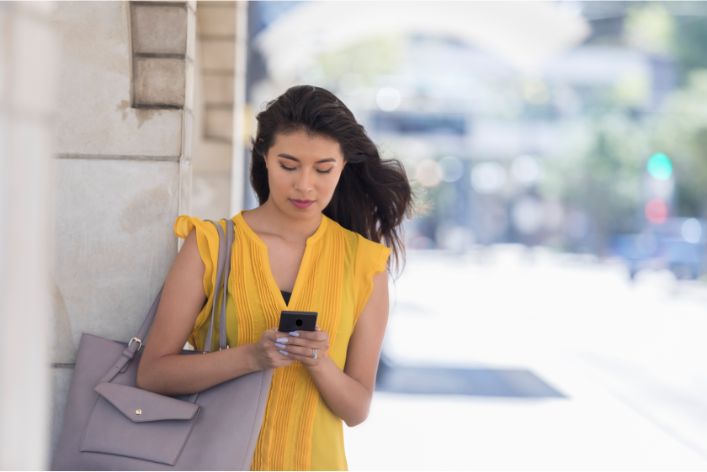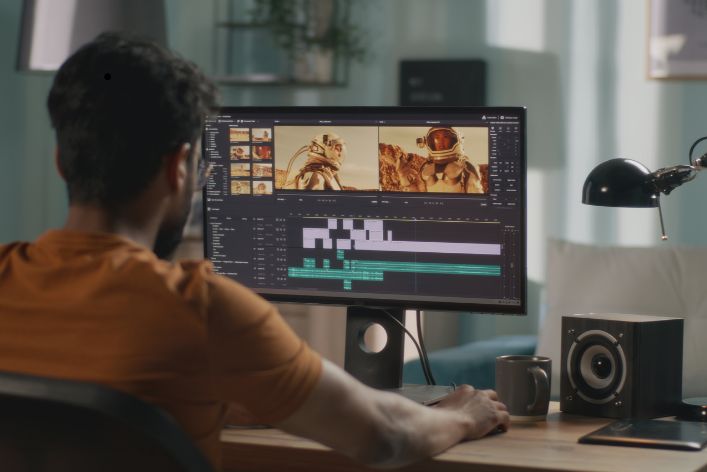Last Updated on June 9, 2023
Social networks are online platforms that allow people to connect with each other virtually. With the rise of social media, it has become easier than ever to share information, ideas, and opinions with a vast online community. However, with this ease of sharing comes certain responsibilities and risks.
It is crucial to understand the importance of safe and responsible use of social networks. Any information that you share online can have a significant impact on your life, both positive and negative. Therefore, it is crucial to be aware of what you post and who can see it.

This blog post aims to provide an overview of the safe and responsible use of social networks. We will look at the potential risks of posting too much information, identity theft, cyberbullying, and addiction. We will also provide tips on how to protect yourself online, such as creating strong passwords and being mindful of what you post online.
Read: How to Protect Your Privacy on Facebook and Instagram
Risks Associated with Social Networks
Social networks have become an integral part of people’s lives, but their usage comes with a set of risks. Many people are not aware of the risks associated with social networks, and as a result, they expose themselves to cyber threats. Let’s explore some of the significant risks associated with social networks that users need to be aware of.
A. Cyberbullying
Cyberbullying is a prevalent issue on social networks, and it affects both young and old. It involves the use of technology to harass, intimidate, or embarrass someone.
Cyberbullies may use social networks to attack their targets, and the effects of cyberbullying can be long-lasting. Victims of cyberbullying may experience depression, anxiety, and even suicide.
To avoid cyberbullying, users should be aware of what they share online and be cautious with whom they interact. They should also report any cases of cyberbullying to the social media platform and law enforcement agencies.
B. Identity Theft
Identity theft is another risk associated with social networks. Cybercriminals may create fake profiles or use compromised accounts to steal personal information such as name, date of birth, and addresses.
This information can be used to commit financial fraud, open bank accounts, and even apply for credit cards.
Users can protect themselves from identity theft by being cautious of the information they share online. They should not share personal information with strangers and review their privacy settings regularly. Users should also use strong passwords and enable two-factor authentication to secure their accounts.
Read: Understanding Privacy Concerns in Social Media Usage
C. Hacking
Social networks are a prime target for hackers seeking to steal data or spread malware. Hackers may use phishing scams or fake login pages to gain access to users’ accounts.
Once the attacker gains access to the user’s account, they can use it to spread malware, spam, and scams to the user’s contacts.
To prevent hacking, users should use strong passwords, avoid clicking on suspicious links, and enable two-factor authentication. Users should also keep their software and antivirus programs up to date.
D. Malware and Viruses
Malware and viruses are prevalent on social networks, and they can cause significant damage to users’ devices.
Malware can be downloaded onto a user’s device, allowing cybercriminals to gain remote access to sensitive information stored on the device. Viruses can also cause damage to the user’s device.
To protect against malware and viruses, users should avoid clicking on suspicious links and downloading files from suspicious sources. Users should also keep their devices and antivirus programs up to date.
In a nutshell, social networks have become an integral part of people’s lives, but their usage comes with risks. Users need to be aware of the risks associated with social networks and take precautions to protect themselves from cyber threats.
By being cautious about what they share online and regularly reviewing their privacy settings, users can reduce the risks associated with social networks.
Read: How to Create a Personal Brand on Instagram
Tips for Safe and Responsible Use of Social Networks
A. Protecting Personal Information
- Keep private information like birth date, address, and phone number secure.
- Avoid sharing public information like school and work locations with strangers.
B. Passwords
- Create strong passwords that combine upper and lower-case letters, numbers, and symbols.
- Avoid reusing passwords across different accounts to reduce vulnerability to hacking attacks.
C. Securing Your Account
- Enable two-factor authentication for an additional layer of security for your social media account.
- Always log out of your social media account when you are finished using it.
D. Online Etiquette
- Be kind and respectful in all online interactions, regardless of whether you are speaking to friends or strangers.
- Avoid making personal attacks and defamatory remarks that could harm others or reflect poorly on yourself.
Read: How to Showcase Your Skills on LinkedIn
Social networks, while integral to our lives, pose significant risks if not used responsibly. The protection of personal information is crucial. Users should:
- Limit the personal information shared, keeping private details like birth dates and addresses secure.
- Share public information sparingly. Revealing your school or workplace location isn’t always necessary.
Creating strong passwords helps maintain account security. Include upper and lower-case letters, numbers, and symbols to make them hard to guess. Avoid reusing passwords across accounts to minimize hacking vulnerability.
Enable two-factor authentication for added security. This requires a second verification step, like a code sent via text or email.
Maintain online etiquette; be respectful and avoid defamatory remarks. Remember that social media content is shareable and archival, so consider the potential harm before posting.
In conclusion, social networks bring risks, but responsible use, following these tips, enables us to enjoy their benefits while reducing potential negative effects.
Read: The Role of Social Media in Personal Branding
What To Do When Something Goes Wrong
Despite taking necessary precautions, undesirable circumstances may still arise when using social networks. It is essential to know what to do to protect yourself when things go wrong. Here are three steps to follow:
A. Report or Block
If you find yourself in an unpleasant situation with another user, take action immediately. The first step is to report or block the user. Most social networking platforms have a report button that allows you to report abusive or inappropriate behavior.
By reporting such users, the platform’s moderators can investigate and take necessary action, such as suspending or banning the offender’s account. In severe cases, blocking the user can prevent them from contacting or viewing your profile.
B. Change Passwords
If you suspect that your account has been compromised, changing your password as soon as possible is essential. Changing your password frequently can also prevent hackers from gaining access to your account and personal information.
Choose a secure password that is difficult to guess, and avoid using common phrases, personal information, or anything easily accessible online.
Enable two-factor authentication where possible to provide an extra layer of protection for your account.
Read: How to Use Google Analytics for Social Media Tracking
C. Notify Authorities
If you suspect that your social media account has been hacked, it is possible that your personal information might have been shared without your consent. In such circumstances, you should notify the authorities, such as local law enforcement agencies or cybercrime units.
They can investigate and take necessary legal action to protect you and your interests. Furthermore, if you receive any threats or abuse on any social media platform, report it to the appropriate authorities to prevent it from escalating.
Basically, social media platforms have become an essential part of our daily lives. While these platforms are designed to connect people, they can also expose us to risks such as identity theft, cyberbullying, and other forms of online abuse.
Therefore, it is essential to take the necessary precautions to stay safe. However, if you find yourself in an undesirable situation, follow the above steps to report or block, change passwords, and notify the authorities.
Staying vigilant and informed can help you navigate the digital landscape and ensure a safe and enjoyable online experience.
Read: What Metrics to Track in Social Media Marketing?
Conclusion
The safe and responsible use of social networks is an essential skill in today’s digital age. Despite their benefits, social networks can be detrimental to our personal and professional lives if we don’t use them properly.
We’ve provided practical tips on how to stay safe while using social networks, such as being mindful of personal information and watching out for scams and phishing attempts.
By following these tips, we can enjoy the benefits of social networks without putting ourselves at risk. We must also pass this knowledge on to our children and loved ones to ensure they use social networks responsibly.
On a final note, social network safety is not an option but a necessity. Follow the tips provided in this post, and you’ll be on your way to enjoying the benefits of social networks while keeping your personal and professional life safe.
Read: Understanding Digital Media Analytics and Its Importance
Before You Go…
Hey, thank you for reading this blog post to the end. I hope it was helpful. Let me tell you a little bit about Nicholas Idoko Technologies. We help businesses and companies build an online presence by developing web, mobile, desktop, and blockchain applications.
We also help aspiring software developers and programmers learn the skills they need to have a successful career. Take your first step to becoming a programming boss by joining our Learn To Code academy today!
Be sure to contact us if you need more information or have any questions! We are readily available.











